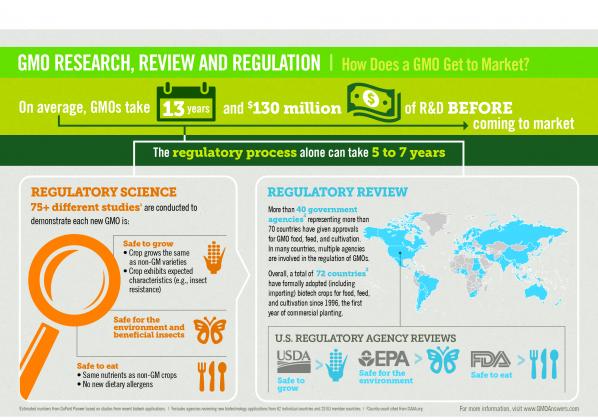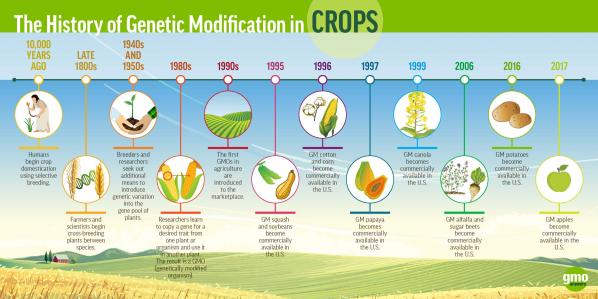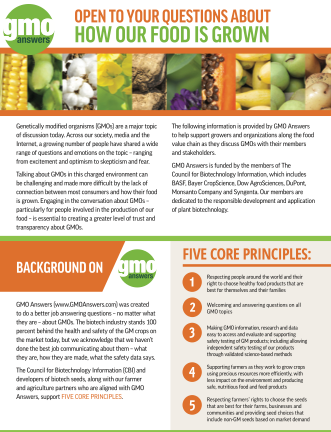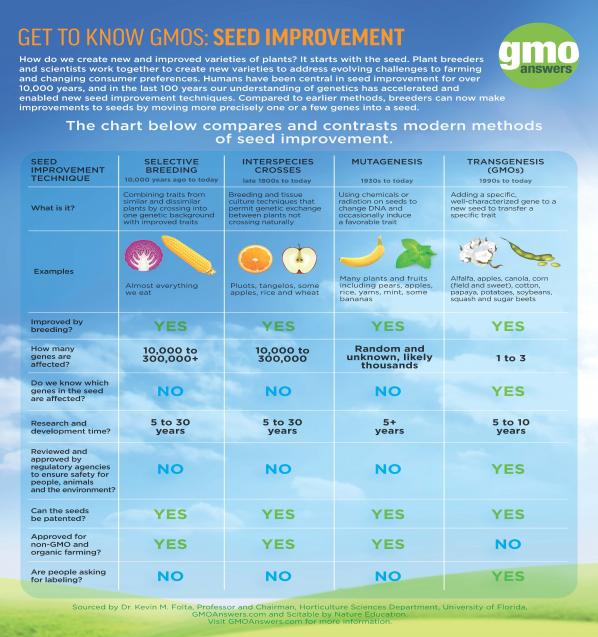I Have a Dream: Organic Movements Include Gene Manipulation to Improve Sustainable Farming
The following is a study by researcher Gerhart U. Ryffel in the journal Sustainability detailing how genetically modified crops and organic farming can work together.
Several papers in a Special Issue of Sustainability have recently discussed various aspects to evaluate whether organic farming and gene manipulation are compatible. A special emphasis was given to new plant breeding techniques (NPBTs). These new approaches allow the most predictable genetic alterations of crop plants in ways that the genetically modified plant is identical to a plant generated by conventional breeding. The articles of the Special Issue present the arguments pro and contra the inclusion of the plants generated by NPBTs in organic farming. Organic movements have not yet made a final decision whether some of these techniques should be accepted or banned. In my view these novel genetically manipulated (GM) crops could be used in such a way as to respect the requirements for genetically manipulated organisms (GMOs) formulated by the International Federation of Organic Movements (IFOAM). Reviewing the potential benefits of disease-resistant potatoes and bananas, it seems possible that these crops support organic farming. To this end, I propose specific requirements that the organic movements should proactively formulate as their standards to accept specific GM crops.
Several years ago, I proposed to develop a new category of GM plants, i.e., orgenic plants, genetically modified plants, that are compatible with the standards of organic farming. Reviewing all the arguments made pro and contra gene manipulation as a technique compatible with organic farming in the Special Issue of Sustainability, I strongly believe that a integration is possible by respecting the various positions. It seems clear to me that it is essential to evaluate the properties of a genetically engineered crop and not the process used. The organic farming community should formulate, in a proactive manner, the requirements of genetically engineered crops to make them attractive for supporting sustainable agriculture. The IFOAM draft may be considered as a starting point. However, in my view it is not advisable to call genetically engineered crops which could also be obtained by natural breeding as non-GMO. By the process used, they are GM crops. The organic movements should base their decisions on the product and specifically list GM crops that are acceptable according to norms of organic production. Based on the discussion raised in this Special Issue, I think that cisgenic potatoes resistant to late blight, bananas resistant to wilt disease, as well as golden bananas, are excellent candidates to be acceptable for organic farming. Of course, there are many other examples that should be evaluated.
Based on the IFOAM criteria, I propose the following requirements to be essential to make a GM crop acceptable for organic farming:
(1) The GM crop should not contain any DNA that is not present in sexually compatible species. Thus, only cisgenic or genome-edited plants are acceptable and the absence of any foreign DNA should be verified by genome sequencing.
(2) Any GM crop that contains DNA from a species that is not sexually compatible should be absolutely sterile to avoid transgene escape. The same rule applies to intragenic plants, as they contain gene arrangements that are most unlikely to occur naturally.
(3) The GM crop should allow cultivation under organic farming standards. Specifically, it should not require any synthetic chemicals such as herbicides or fertilizers.
(4) The GM crop should be freely available and any farmer should be allowed to propagate and further improve the GM plants.
In my view, with these four basic rules, organic farming can absorb gene manipulation to support the principles of organic farming including health, ecology, fairness and care. The organic movement should also support a loose regulatory regime, if any, for such genetically modified crops to allow broad development by small entities as well as to apply these new breeding techniques to a broad spectrum of valuable cultivars to maintain seed diversity.
To read the full text of I Have a Dream: Organic Movements Include Gene Manipulation to Improve Sustainable Farming, please visit the journal Sustainability.



